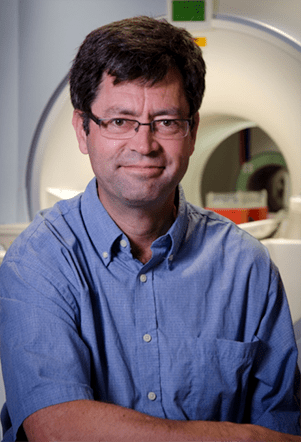
ABSTRACT:
The implementation of medical artificial nanorobots are still far beyond present technological feasibility. But nature has already provided natural nanorobots that have the capability of these envisioned nanorobots of the future. As such, our approach was then to learn how to exploit their capabilities to accomplish specific tasks. More specifically, it will be shown how tens of millions of MC-1 bacteria can be harnessed simultaneously to mimic swarms of such futuristic artificial nanorobots with an equivalent capability level when operating in a computer-controlled artificial environment enabling the exploitation of their magneto-aerotactic migration behavior. Our experimental results conducted in animal models suggest that exploiting the actuation-navigation-sensory capability of these natural nanorobots can lead to more effective targeting and to the first method of non-systemic transports of drug molecules to deeply located tumor regions such as the hypoxic zones to achieve maximum therapeutic outcomes. Besides showing how such a technology can also be used as a powerful diagnostic tool, the talk will continue with some novel complementary methods of navigation and transport of therapeutic agents in the vascular network using clinical MRI scanners being adapted to act as drug delivery platforms, and how the integration of nanoscale components in such robotic navigable agents allowing the exploitation of physical phenomena occurring at the nanoscale can be used to embed functionalities and capabilities such as locally opening the blood-brain barrier. The talk will conclude with some thoughts about future prospects including but not limited to the exploitation of swarm behaviors to increase targeting efficacy further, and genetically modified agents suited for particular tasks and physiological environments.
BIO:
Prof. Sylvain Martel, Fellow of the Canadian Academy of Engineering as well as IEEE Fellow, is Chair of the IEEE Technical Committee on Micro- Nanorobotics and Automation, and Director of the NanoRobotics Laboratory at Polytechnique Montréal, Campus of the University of Montréal, Canada. He received many awards mostly in interdisciplinary research and he is a recipient of a Tier 1 Canada Research Chair in Medical Nanorobotics. He developed several biomedical technologies including platforms for remote surgeries and cardiac mapping systems when at McGill University, and new types of brain implants for decoding neuronal activities in the motor cortex when at MIT. Among other achievements, Dr. Martel’s research group is also credited for the first demonstration of the controlled navigation of an untethered object in the blood vessel of a living animal. Presently, Prof. Martel is leading an interdisciplinary team involved in the development of navigable therapeutic agents and interventional platforms for cancer therapy. This research is based on a new paradigm in drug delivery pioneered by Prof. Martel and being known as direct targeting where therapeutics are navigated in the vascular network towards solid tumors using the most direct physiological routes. Such approach leading to a significant increase of the therapeutic index has been featured in several media around the world such as The Globe and Mail, MIT Technology Review, New Scientist, The Economist, BBC, Newsweek, etc.





